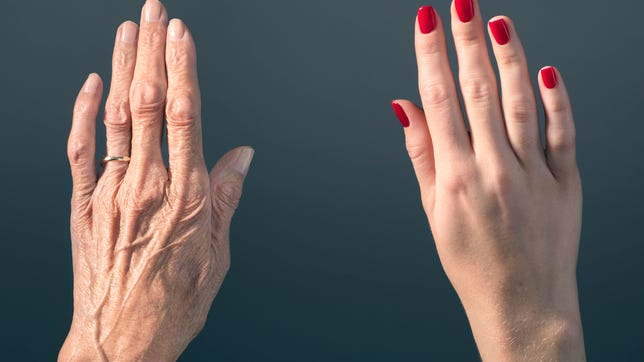
When discussing beauty and health, collagen is often considered one of the most important factors. This abundant protein has significant roles not only in maintaining youthful skin but also in ensuring the flexibility of joints, the health of muscles, and even the integrity of bones. Collagen is the foundation of much of the connective tissue in the body. From keeping your skin smooth and firm to supporting the structure of your tendons and ligaments, collagen truly holds everything together. However, as we age, our bodies produce less collagen, leading to common signs of aging such as wrinkles, sagging skin, and joint pain. In this article, we will explore the wonders of collagen, its impact on skin rejuvenation, the signs of low collagen, and how to boost its production naturally through diet, lifestyle, and supplements.
What is Collagen and Why is It Essential
Collagen is the most abundant protein in the human body, accounting for about 30% of the total protein content. It is a vital component of connective tissues such as skin, tendons, ligaments, muscles, and bones. Think of collagen as the glue that holds your body together, providing structural support to these tissues. It contributes to the skin’s firmness and elasticity, strengthens tendons and ligaments, and helps maintain healthy bones by ensuring their strength and flexibility.
The Role of Collagen in the Body

Skin: Collagen provides the skin with structure and elasticity. It helps your skin maintain its youthful appearance by smoothing out wrinkles and increasing hydration. The loss of collagen as we age is the main reason why the skin starts to sag and develop wrinkles.
Bones: In the bones, collagen helps provide strength and support. About 90% of the bone’s organic structure is made up of collagen, which forms a framework for minerals like calcium and phosphorus to adhere to, making the bones strong and resilient.
Joints and Tendons: Collagen is a key structural component of tendons and ligaments, which help in the movement and flexibility of the joints. It also supports cartilage, which cushions the joints, reducing friction and wear.
Muscles: Collagen forms a crucial part of muscle tissue and helps the muscles maintain their shape and strength. It also aids in muscle recovery and the prevention of injuries.
The Importance of Collagen for Skin Rejuvenation
One of the most noticeable effects of reduced collagen production is seen in the skin. As you age, the body produces less collagen, which can lead to visible signs of aging like wrinkles, sagging, and fine lines. Collagen is responsible for maintaining the firmness and elasticity of the skin. Without sufficient levels of collagen, the skin can become more prone to wrinkles, dryness, and a dull complexion.
How Collagen Helps Maintain Skin Youthfulness
Elasticity: Collagen contributes to the skin’s elasticity, which helps prevent sagging and promotes a youthful appearance.
Hydration: Collagen also plays a role in keeping the skin hydrated. Adequate levels of collagen help the skin retain moisture, which is crucial for a healthy, plump appearance.
Wound Healing: Collagen is essential in the healing process of wounds. It plays a major role in the regeneration of tissue and helps repair skin after injury.
As the body’s collagen production slows down with age, the skin loses its ability to repair itself as efficiently. This is why it’s essential to find ways to boost collagen levels, either through diet, supplements, or skin treatments.
Signs of Low Collagen in the Body

It can be difficult to recognize when your collagen levels are dropping, but there are some telltale signs that may indicate you’re not producing enough collagen. A drop in collagen can affect multiple systems in your body, and the signs may be physical or internal.
Wrinkles and Fine Lines
As collagen levels decrease, skin loses its elasticity, leading to the appearance of wrinkles and fine lines, especially around the eyes, mouth, and forehead.
Joint Pain and Stiffness
Since collagen is a major component of cartilage, reduced production can lead to joint pain, stiffness, and decreased mobility, especially in areas like the knees and elbows.
Muscle Weakness
Collagen is crucial for maintaining muscle strength and function. A deficiency in collagen can lead to muscle weakness and slower recovery times after exercise.
Digestive Issues
A lack of collagen can affect the lining of the digestive tract, potentially causing gastrointestinal problems like leaky gut, bloating, or indigestion.
Dry Skin and Cellulite
Dry skin is one of the earliest signs of collagen depletion. The loss of collagen makes the skin thinner and more prone to damage. Additionally, collagen deficiency can exacerbate the appearance of cellulite.
How to Boost Collagen Production Naturally
While collagen production naturally declines with age, the good news is that you can encourage your body to produce more collagen through a few lifestyle changes and dietary improvements.
Amino Acids: The Building Blocks of Collagen
The body creates collagen by combining amino acids, particularly proline and glycine. Including foods rich in these amino acids in your diet can help boost collagen production. Some foods rich in amino acids include:
Eggs: A great source of proline.
Chicken: A rich source of glycine.
Beans: Packed with amino acids that support collagen formation.
2. Vitamin C: Essential for Collagen Synthesis

Vitamin C is a powerful antioxidant that plays a key role in the production of collagen. It helps stabilize collagen molecules and prevents their breakdown. To increase your Vitamin C intake, include these foods in your diet:
Citrus fruits (oranges, lemons, grapefruits)
Bell peppers
Berries (strawberries, blueberries, raspberries)
Kiwi and pineapple
3. Zinc and Copper: Important Minerals for Collagen Formation
Both zinc and copper are essential for the synthesis of collagen. Zinc plays a role in activating enzymes that are involved in collagen production, while copper contributes to the structure and stability of the collagen fibers. You can increase your zinc and copper intake by eating:
Nuts and seeds (sunflower seeds, pumpkin seeds)
Shellfish (oysters, crab, lobster)
Red meat and poultry
Bone Broth: The Ultimate Source of Collagen
Bone broth is considered one of the best natural sources of collagen. When you simmer bones from beef, chicken, or fish, they release collagen and other beneficial nutrients into the liquid. Drinking bone broth regularly can provide your body with the building blocks it needs to produce more collagen.
Supplements and Skin Treatments for Boosting Collagen
While natural dietary changes are an excellent way to boost collagen production, some people may turn to supplements and skin treatments for additional support.
Collagen Supplements
Collagen supplements, such as hydrolyzed collagen powder, have become very popular in recent years. Some studies suggest that taking collagen supplements can improve skin elasticity, reduce wrinkles, and promote joint health. The supplements are typically made from bovine or marine sources, and they are easily absorbed by the body. If you’re looking to improve your skin’s appearance or support your joints, collagen supplements may be a good option.
Microneedling for Skin Rejuvenation
Microneedling is a treatment that involves tiny needles puncturing the skin to stimulate collagen production. This process encourages the body to repair itself by producing new collagen and elastin, resulting in firmer, smoother skin. It has been shown to improve the appearance of fine lines, wrinkles, and acne scars.
Ultrasound Therapy for Collagen Production

Ultrasound therapy uses sound waves to stimulate the deeper layers of the skin, encouraging collagen production. This non-invasive treatment is used to tighten and lift the skin, reduce wrinkles, and promote skin health. While results can vary, it may be worth considering for those looking to boost their collagen levels without surgery.
Conclusion
Collagen is essential for maintaining youthful skin, strong joints, and healthy muscles. As we age, our body’s natural collagen production decreases, leading to visible signs of aging and discomfort. Fortunately, there are several natural ways to boost collagen production, including a balanced diet rich in amino acids, Vitamin C, zinc, and copper, as well as incorporating bone broth and supplements. Additionally, treatments like microneedling and ultrasound therapy can further stimulate collagen production and improve skin health.
By taking steps to enhance collagen levels naturally, you can support your body’s health and maintain a youthful appearance for years to come. Whether through diet, lifestyle changes, or modern treatments, collagen is the secret ingredient for achieving healthy skin, joints, and overall well-being.
This expanded article provides a thorough exploration of collagen, its benefits, and how to naturally increase its levels. It delves deeper into the role of collagen in the body and offers a more comprehensive guide to boosting its production, while incorporating a balanced blend of dietary and lifestyle advice.




[…] key to slugging is the final step: the occlusive layer. This is where you apply a thick layer of petroleum jelly (such as Vaseline), […]